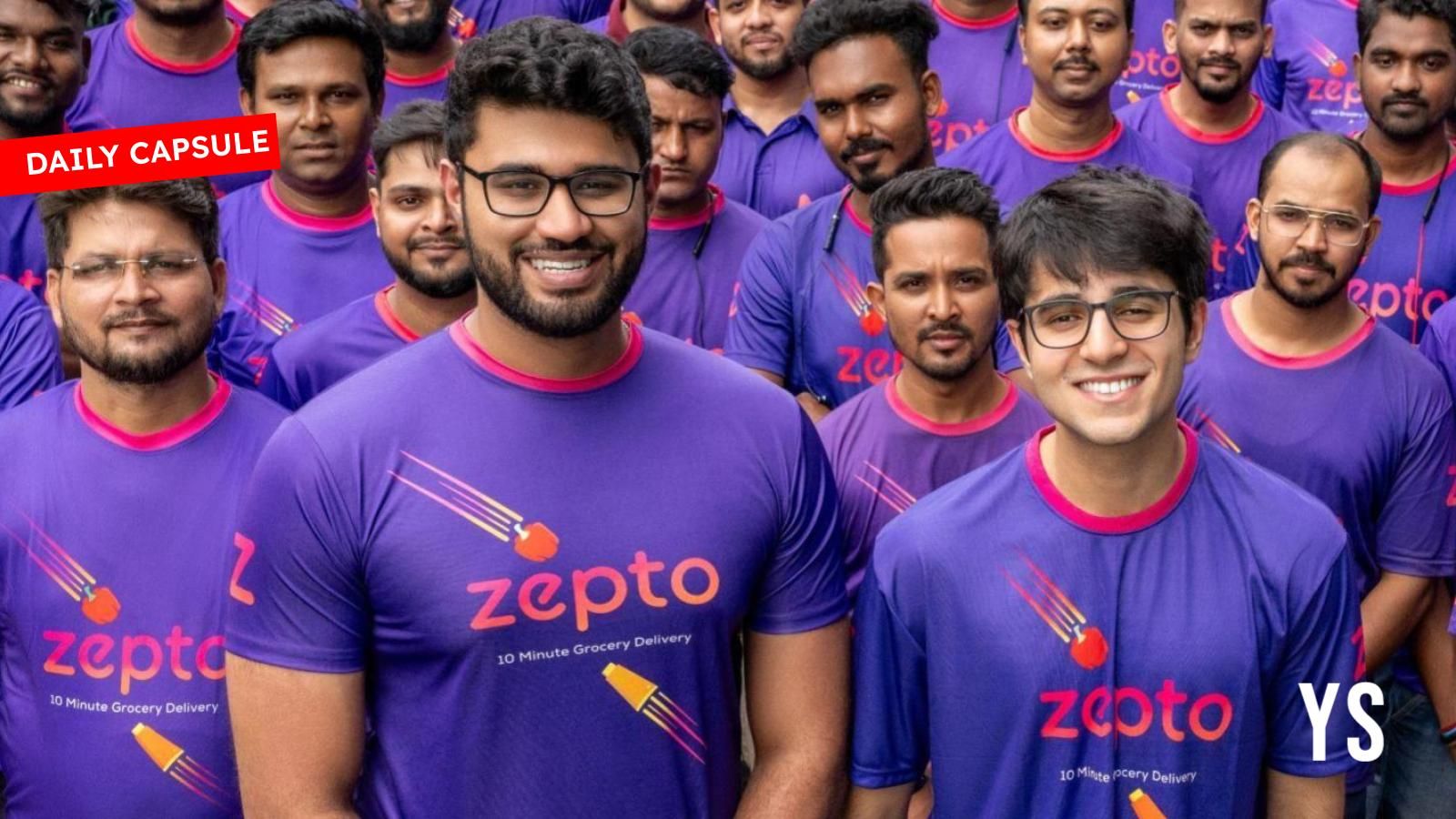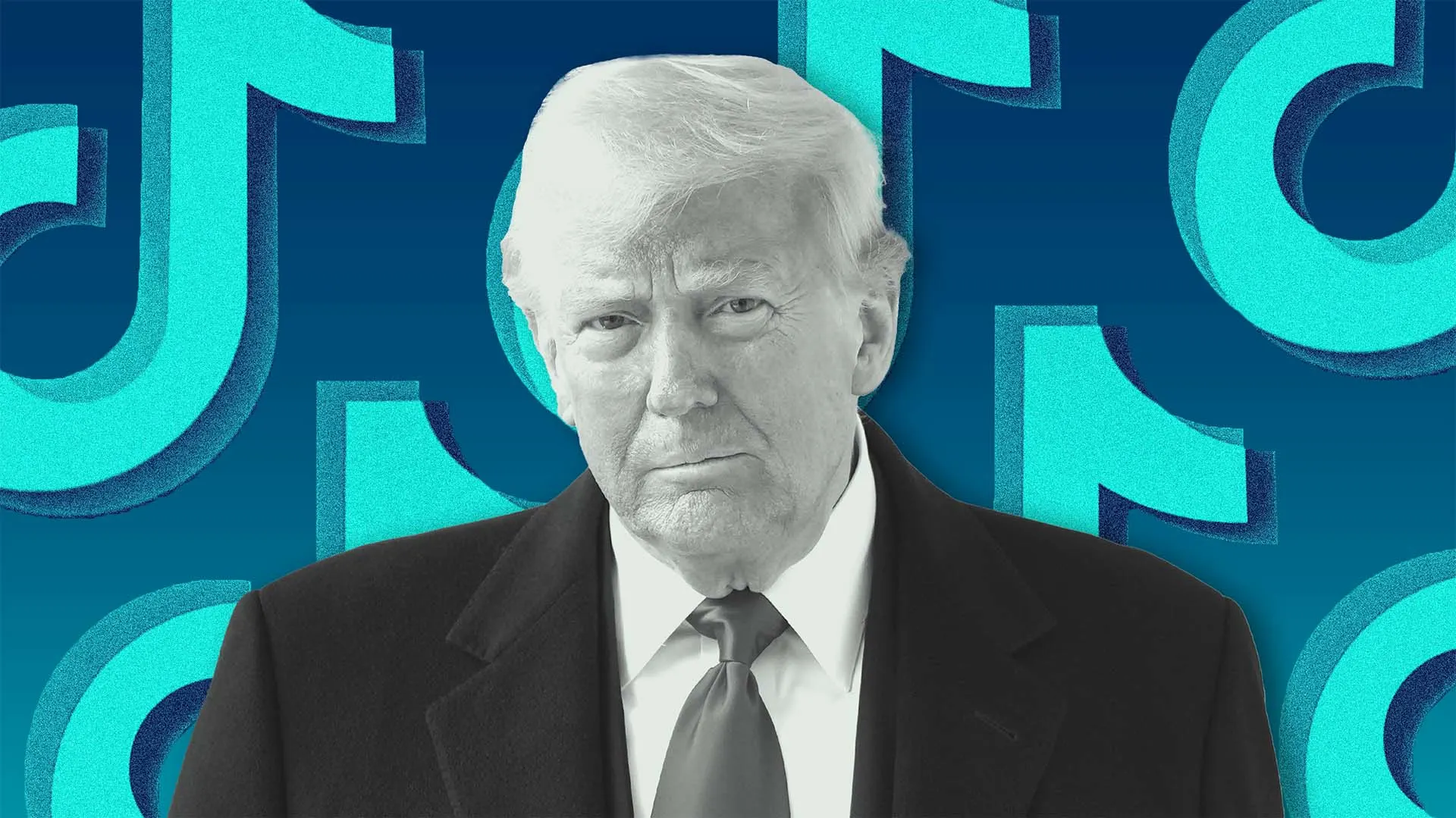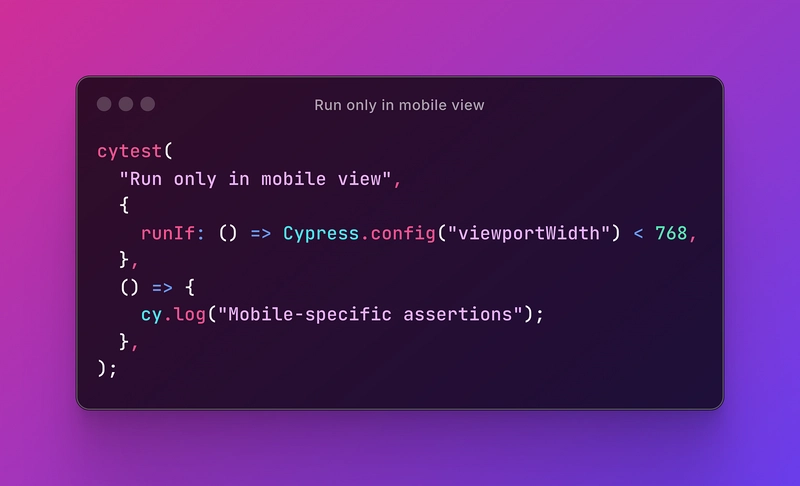GitHub Sponsors: Navigating Privacy and Security in Open Source Funding
Abstract: This post examines GitHub Sponsors, its role in supporting open source projects, and the intricate balance between financial sustainability, privacy, and security. We explore the platform’s background, core concepts, practical applications, challenges, and future directions. In addition to covering GitHub Sponsors, we also discuss related crowdfunding platforms and emerging trends in open source funding through tokenization and blockchain innovations. The post includes detailed tables, bullet lists, and links to both authoritative sources and related dev.to posts to help you navigate the landscape of funding open source software while keeping privacy and security in focus. Introduction In today’s digital age, open source software is more than just a tool—it is the backbone of innovation. Platforms such as GitHub have revolutionized how developers collaborate and share code. With the introduction of GitHub Sponsors, developers can now receive direct financial support to sustain and grow their projects. However, while this mechanism offers a route to financial backing similar to Patreon or Kickstarter, it also raises privacy and security concerns that call for careful consideration. This article delves into GitHub Sponsors, exploring its benefits, how it handles sensitive data, and the measures taken to protect users. We further analyze how the platform intersects with broader trends such as blockchain-based funding and tokenization methods for open source projects. Background and Context GitHub, a global community of developers, has long been a hub for code sharing and collaborative innovation. In 2019, GitHub recognized the need to sustain open source work and introduced GitHub Sponsors. This initiative allows developers to receive monthly support from the community while GitHub manages the financial transactions. Its implementation not only promises improved sustainability but also raises intricate issues around data collection, privacy, and transparency. Historically, open source funding was reliant on donations, grants, and community contributions. As open source projects have grown in complexity, so too has the need to streamline funding while ensuring that privacy and financial security remain uncompromised. With comprehensive GitHub privacy policies and adherence to global standards like the GDPR, GitHub aims to mitigate privacy risks while empowering developers. Additional perspectives from platforms like GitHub Sponsors vs Patreon provide insights into the pros and cons of different models in the growing ecosystem of digital project funding. Core Concepts and Features GitHub Sponsors integrates several core features designed to support developers and protect sensitive information. Below, we outline the key terms and concepts: Sponsorship Tiers: Developers can offer various reward tiers to sponsors, incentivizing continued financial backing. Payment Processing: GitHub manages all payment transactions through advanced encryption and secure third-party financial handlers. Transparency vs Privacy: While sponsorships can be publicly listed for transparency, GitHub provides options for users to keep their sponsorship information private. Data Collection and Handling: Personal data (names, email addresses) and payment details are handled in accordance with stringent privacy practices. Customizability: Developers and sponsors can customize the visibility of their financial interactions, allowing a balance between public recognition and anonymity. Table: Key Features of GitHub Sponsors Feature Description Benefits Sponsorship Tiers Different levels of financial support, allowing varied rewards for sponsors. Incentivizes diverse forms of support. Secure Payment Processing Managed by GitHub with advanced encryption and third-party financial processors. Reduces risks of data breaches. Privacy Customizability Users choose to display or hide sponsorship data, balancing transparency and privacy. Protects sensitive personal and financial data. Transparent Transactions Sponsored contributions are tracked and, by default, publicly accessible to promote community trust. Enhances community engagement. Data Compliance Adheres to global standards such as GDPR and follows robust security protocols. Builds user confidence in data management. GitHub Sponsors’ integration of these features ensures that developers enjoy both financial backing and protection against potential security threats. Applications and Use Cases GitHub Sponsors has numerous practical applications, from promoting innovative projects to sustaining long-term contributions. Below are a few practical examples: Independent Developer Support: Freelance programmers can receive consistent support to work on open source projects, reducing the barriers to entry in technology innovation. Sustaining Large Scale Projects: Well-known projects like open
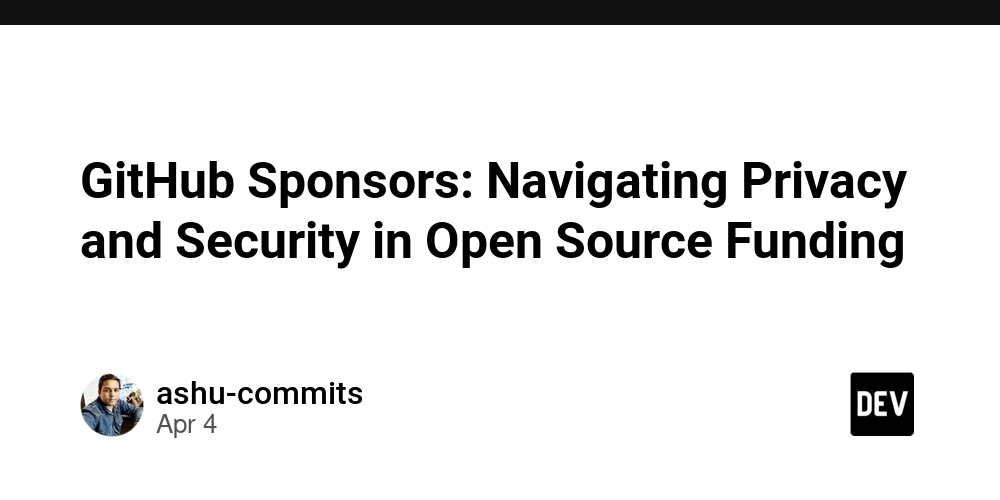
Abstract:
This post examines GitHub Sponsors, its role in supporting open source projects, and the intricate balance between financial sustainability, privacy, and security. We explore the platform’s background, core concepts, practical applications, challenges, and future directions. In addition to covering GitHub Sponsors, we also discuss related crowdfunding platforms and emerging trends in open source funding through tokenization and blockchain innovations. The post includes detailed tables, bullet lists, and links to both authoritative sources and related dev.to posts to help you navigate the landscape of funding open source software while keeping privacy and security in focus.
Introduction
In today’s digital age, open source software is more than just a tool—it is the backbone of innovation. Platforms such as GitHub have revolutionized how developers collaborate and share code. With the introduction of GitHub Sponsors, developers can now receive direct financial support to sustain and grow their projects. However, while this mechanism offers a route to financial backing similar to Patreon or Kickstarter, it also raises privacy and security concerns that call for careful consideration.
This article delves into GitHub Sponsors, exploring its benefits, how it handles sensitive data, and the measures taken to protect users. We further analyze how the platform intersects with broader trends such as blockchain-based funding and tokenization methods for open source projects.
Background and Context
GitHub, a global community of developers, has long been a hub for code sharing and collaborative innovation. In 2019, GitHub recognized the need to sustain open source work and introduced GitHub Sponsors. This initiative allows developers to receive monthly support from the community while GitHub manages the financial transactions. Its implementation not only promises improved sustainability but also raises intricate issues around data collection, privacy, and transparency.
Historically, open source funding was reliant on donations, grants, and community contributions. As open source projects have grown in complexity, so too has the need to streamline funding while ensuring that privacy and financial security remain uncompromised. With comprehensive GitHub privacy policies and adherence to global standards like the GDPR, GitHub aims to mitigate privacy risks while empowering developers.
Additional perspectives from platforms like GitHub Sponsors vs Patreon provide insights into the pros and cons of different models in the growing ecosystem of digital project funding.
Core Concepts and Features
GitHub Sponsors integrates several core features designed to support developers and protect sensitive information. Below, we outline the key terms and concepts:
- Sponsorship Tiers: Developers can offer various reward tiers to sponsors, incentivizing continued financial backing.
- Payment Processing: GitHub manages all payment transactions through advanced encryption and secure third-party financial handlers.
- Transparency vs Privacy: While sponsorships can be publicly listed for transparency, GitHub provides options for users to keep their sponsorship information private.
- Data Collection and Handling: Personal data (names, email addresses) and payment details are handled in accordance with stringent privacy practices.
- Customizability: Developers and sponsors can customize the visibility of their financial interactions, allowing a balance between public recognition and anonymity.
Table: Key Features of GitHub Sponsors
| Feature | Description | Benefits |
|---|---|---|
| Sponsorship Tiers | Different levels of financial support, allowing varied rewards for sponsors. | Incentivizes diverse forms of support. |
| Secure Payment Processing | Managed by GitHub with advanced encryption and third-party financial processors. | Reduces risks of data breaches. |
| Privacy Customizability | Users choose to display or hide sponsorship data, balancing transparency and privacy. | Protects sensitive personal and financial data. |
| Transparent Transactions | Sponsored contributions are tracked and, by default, publicly accessible to promote community trust. | Enhances community engagement. |
| Data Compliance | Adheres to global standards such as GDPR and follows robust security protocols. | Builds user confidence in data management. |
GitHub Sponsors’ integration of these features ensures that developers enjoy both financial backing and protection against potential security threats.
Applications and Use Cases
GitHub Sponsors has numerous practical applications, from promoting innovative projects to sustaining long-term contributions. Below are a few practical examples:
- Independent Developer Support: Freelance programmers can receive consistent support to work on open source projects, reducing the barriers to entry in technology innovation.
- Sustaining Large Scale Projects: Well-known projects like open source libraries and frameworks can benefit from dedicated funding that helps maintain project quality and accelerate updates.
- Community-Driven Features: Open source contributors often work on niche projects that otherwise receive little from traditional funding. GitHub Sponsors provides a built-in ecosystem where community appreciation translates directly into financial support.
Additional examples include:
- Collaborative Initiatives: Groups of developers working on projects can use GitHub Sponsors to build out fully supported collaborative platforms, reducing reliance on volunteer work and fostering a more professional environment.
- Tokenization & Blockchain Funding: Beyond GitHub Sponsors, platforms employing tokenization, such as projects discussed in Sustainability of Open Source through Tokenization, offer new avenues for developers to secure funding using blockchain technology.
For further reading on related cases, consider exploring GitHub Sponsors vs Patreon for a comparative analysis.
Challenges and Limitations
Despite its many benefits, GitHub Sponsors is not without challenges. Some of the primary issues include:
-
Privacy Concerns:
- Personal data including names, email addresses, and financial details are necessary for the sponsorship process.
- Publicly visible transactions may compromise sponsor anonymity if not sufficiently controlled by privacy settings.
-
Security Risks:
- Handling financial data poses risks of potential breaches, requiring continuous updates in encryption and secure data transfer protocols.
-
Adoption Hurdles:
- Some developers may be hesitant to share personal data or might lack familiarity with privacy controls, slowing widespread adoption.
-
Regulatory Compliance:
- Navigating international data protection laws such as GDPR requires constant vigilance and technical updates to remain compliant.
-
Balancing Transparency and Privacy:
- Striking a balance between public recognition of sponsors and individual data protection creates a complex dynamic that requires a nuanced approach.
Below is a bullet list summarizing these points:
- Data Sensitivity: Personal and financial information is highly sensitive.
- Risk of Breaches: Even with robust security, vulnerabilities may exist.
- User Education: Developers and sponsors require guidance on using privacy features effectively.
- Compliance Overhead: Continuous monitoring and updates are needed for legal compliance.
- Complex Settings: Managing customizable visibility settings can be challenging.
Understanding and addressing these challenges is key to improving the ecosystem of open source funding while ensuring that financial support does not come at the expense of user privacy or security.
Future Outlook and Innovations
The future of GitHub Sponsors and related funding models looks promising. As the landscape of open source software continues to grow, we can anticipate a number of trends and innovations:
- Enhanced Privacy Controls: Future iterations of GitHub Sponsors may integrate more intuitive privacy controls. Developers might choose fully anonymous sponsorships or opt for varying degrees of public recognition based on their needs.
- Blockchain Integration: With blockchain technology gaining traction, we may see a convergence between GitHub Sponsors and decentralization trends discussed in Gitcoin and Ethereum. Blockchain-based sponsorships offer tamper-proof records and can streamline payment processing further.
- Tokenization of Open Source Contributions: Projects exploring sustainable open source through tokenization, such as those discussed in Sustainability of Open Source through Tokenization, are likely to gain popularity. Tokenization could provide new incentive models where developers earn digital tokens that represent equity or voting rights in their projects.
- Increased Community Engagement Tools: Tools that offer deeper insights into funding dynamics—such as dashboards tracking sponsorship growth, security audits, and regulatory updates—will likely become standard as platforms aim to improve the developer experience.
- Collaborative Funding Models: Emerging trends suggest a move toward models that incorporate community governance, where funding decisions are partially crowdsourced through decentralized voting mechanisms. This could lead to fairer distribution of funds and boost overall trust in open source ecosystems.
For additional insights into the role of funding and governance, check out related articles such as Navigating the Landscape of Fair Code Licenses and discussions on Compensating Open Source Maintainers.
Summary
GitHub Sponsors has brought forward a vital evolution in the funding of open source projects. By providing financial support and ensuring secure, transparent transactions while maintaining user privacy, it offers a promising model for sustaining the creative and technical community of developers.
Key takeaways from this post include:
- GitHub Sponsors serves as a pivotal platform that balances financial support, privacy, and security for developers.
- Security and Privacy Measures such as advanced encryption and customizable visibility help protect both personal and financial data.
- Applications and Use Cases range from supporting independent developers to enabling large-scale project sustainability.
- Challenges like data sensitivity, regulatory compliance, and user education require continuous refinement.
- Future Innovations include blockchain integration, tokenization, and enhanced privacy solutions, promising a more secure and engaging funding landscape.
By understanding and addressing the complexities of privacy and security, platforms like GitHub Sponsors pave the way for a more robust and ethical approach to open source funding. As technologies evolve, the continuous dialogue between developers, sponsors, and regulators will remain crucial in driving innovation and maintaining trust in the system.
For further reading and deeper insights into these topics, explore more resources such as the GitHub Sponsors and Privacy article and related discussions on platforms like Patreon, Kickstarter, and insightful dev.to posts like Blockchain and Cryptocurrencies: Unraveling the Financial Revolution and Evaluating the Legitimacy of Drip Network: A Comprehensive Analysis.
In conclusion, while the integration of financial support systems like GitHub Sponsors marks a monumental shift for the open source community, ongoing collaboration, community feedback, and a clear focus on privacy and security will be key to sustaining and evolving this ecosystem. The journey towards robust, transparent, and secure funding for open source projects is well underway, promising a future where innovation is both supported and safe.
Whether you are a developer seeking more stable funding or a sponsor concerned about data security, understanding these dynamics is essential for navigating the modern open source ecosystem.






















































.jpg)
%20Abstract%20Background%20112024%20SOURCE%20Amazon.jpg)



















































































































![[The AI Show Episode 142]: ChatGPT’s New Image Generator, Studio Ghibli Craze and Backlash, Gemini 2.5, OpenAI Academy, 4o Updates, Vibe Marketing & xAI Acquires X](https://www.marketingaiinstitute.com/hubfs/ep%20142%20cover.png)
































































































































![From drop-out to software architect with Jason Lengstorf [Podcast #167]](https://cdn.hashnode.com/res/hashnode/image/upload/v1743796461357/f3d19cd7-e6f5-4d7c-8bfc-eb974bc8da68.png?#)





































































































.png?#)





.jpg?#)
































_Christophe_Coat_Alamy.jpg?#)



















































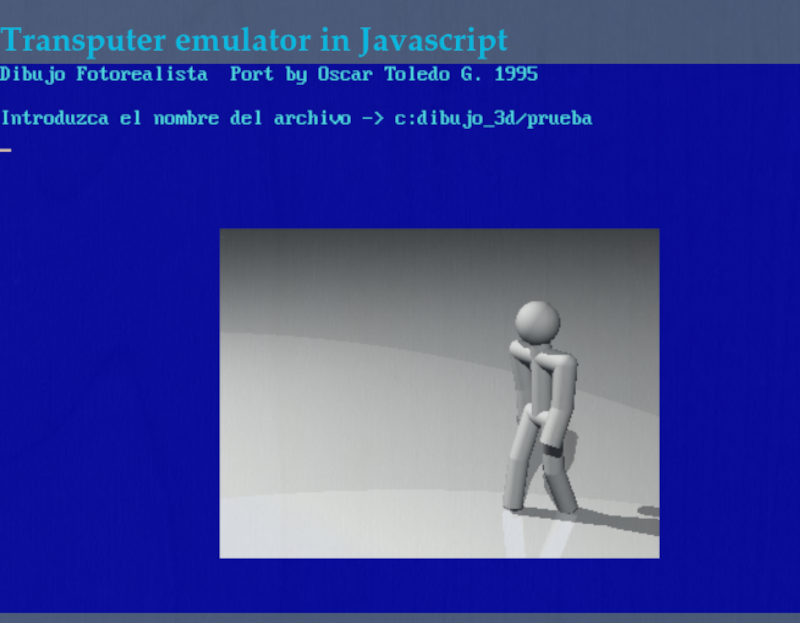
































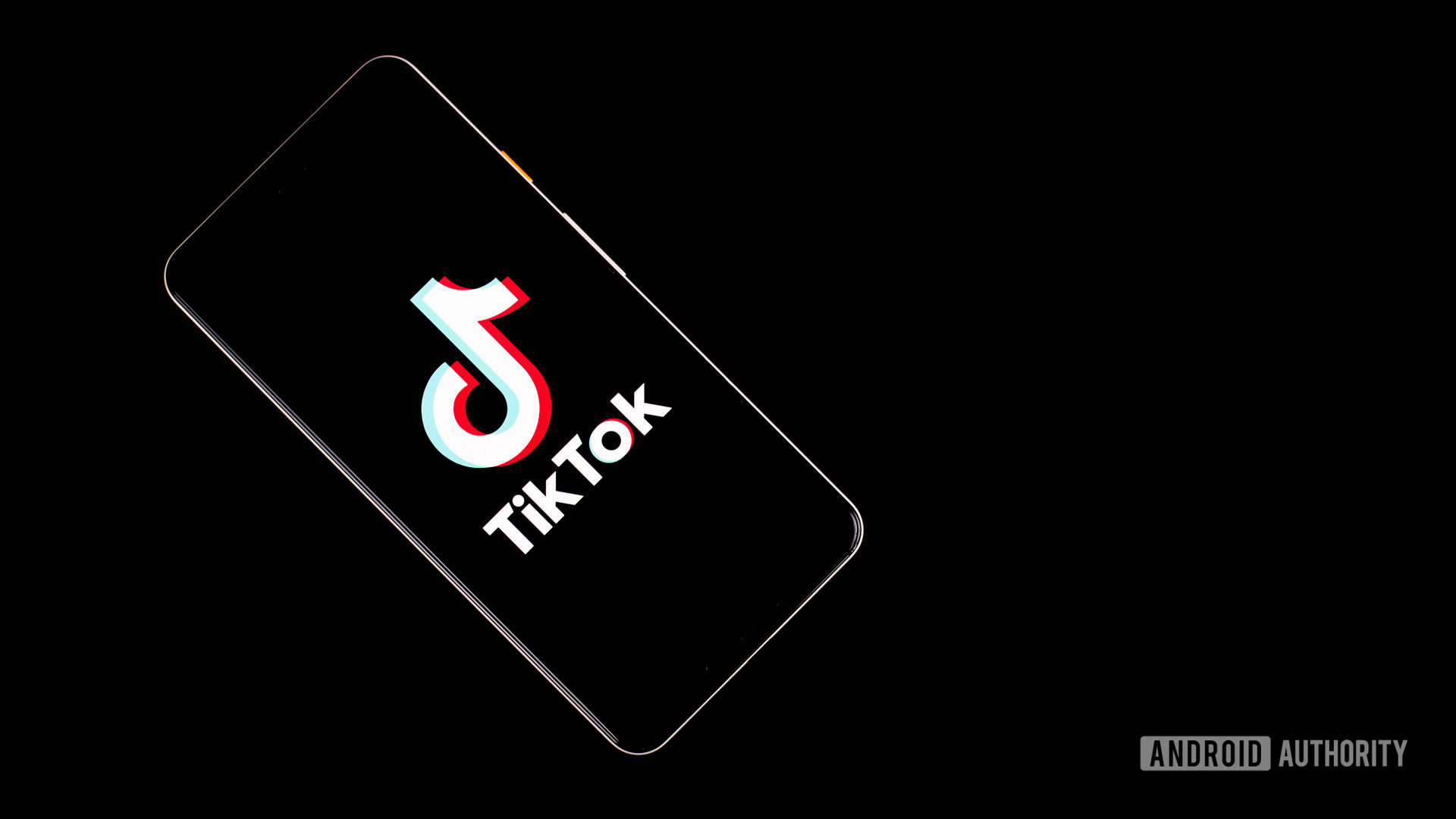






















![Rapidus in Talks With Apple as It Accelerates Toward 2nm Chip Production [Report]](https://www.iclarified.com/images/news/96937/96937/96937-640.jpg)









































































